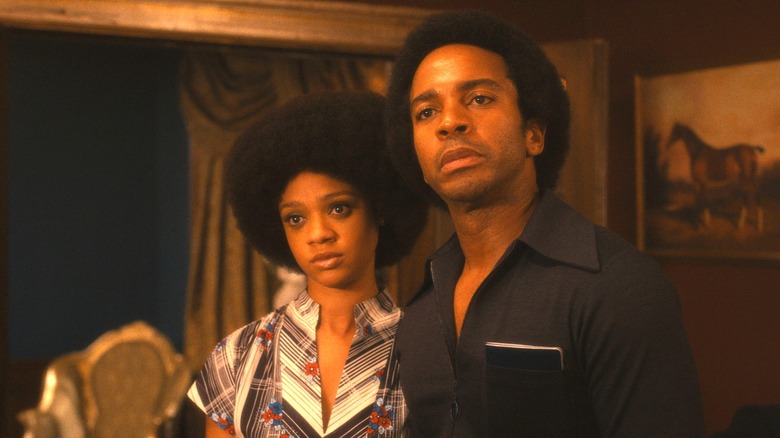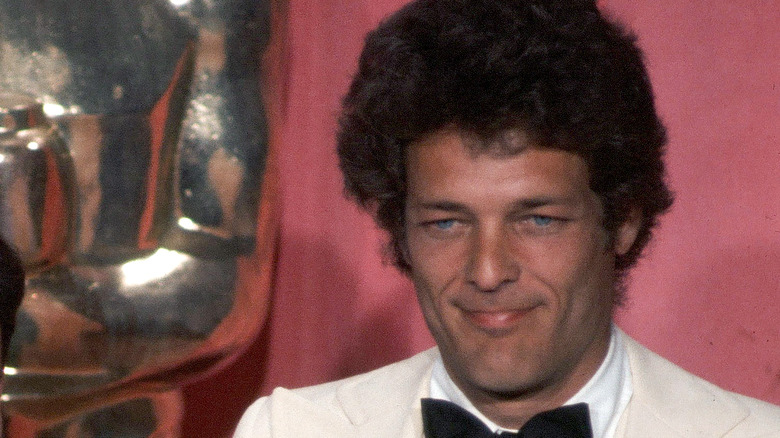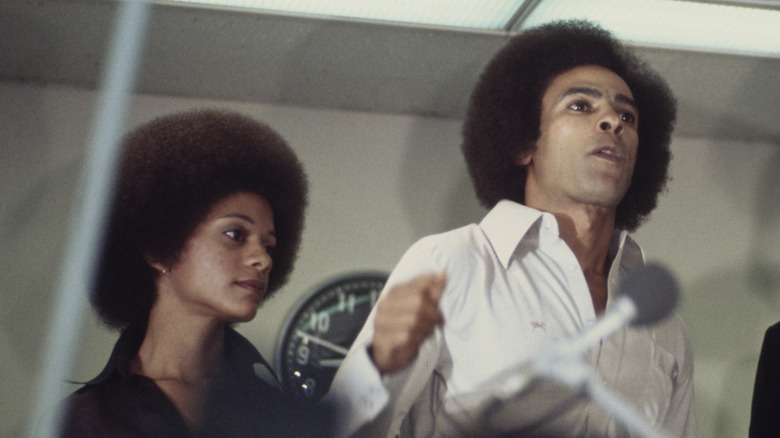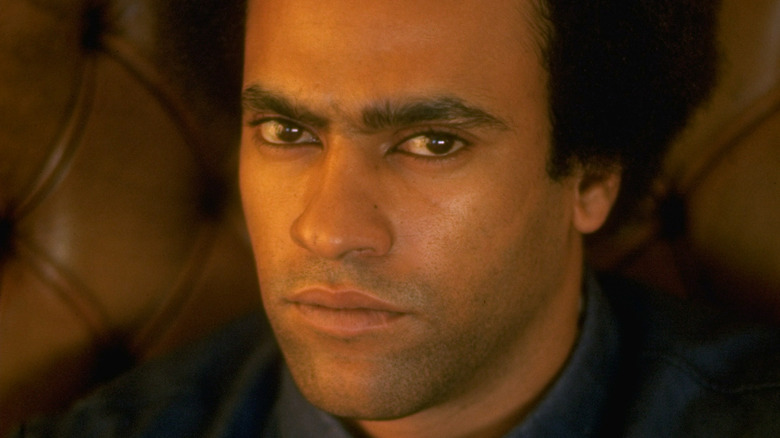Things The Big Cigar Left Out Of The True Story
The Apple TV+ limited series "The Big Cigar" tells the wild story of how several Hollywood players helped Huey P. Newton — the co-founder of the Black power political organization the Black Panthers — flee California for Cuba after the police pinned the murder of a teenage sex worker on him. While the television show is rooted in a true story, like much of what ends up on screen, it leaves out certain parts of the whole story, alters others, and sometimes plays a little fast and loose with the facts.
"The story I'm about to tell you is true," André Holland, the actor who plays Newton in the series, says in a voiceover during the first episode (via the Los Angeles Times). "At least mostly true. At least how I remember it. But it is coming through the lens of Hollywood, so let's see how much of my story they're really willing to show." What didn't make it into "The Big Cigar" included the depth of Newton's friendship with Bert Schneider, a film producer who helps sneak him out of the country, Newton's complicated relationship with his then-girlfriend Gwen Fontaine, nor the scope of his addiction and mental health issues exacerbated by FBI and police harassment.
The series doesn't delve into how deep his relationship with Bert Schneider was
In "The Big Cigar," named after the fake movie the Hollywood producer Bert Schneider came up with as a cover to secret Newton to Cuba, had been a big financial supporter of the Black Panthers' community-based programs that included free breakfasts for children and urban health clinics. Schneider gave the organization more than $250,000, "how can I put it? He's my hero," Schneider said of Newton, according to Time. What the series misses is just how deep a friendship the two men shared, enough for Newton to trust Schneider with his freedom and vice-versa.
Schneider and Newton's friendship didn't end when (spoiler) Newton safely made it to Cuba where he lived for three years before returning to California to face his charges, which prosecutors ended up dropping. Schneider visited him in Cuba and for years after the two men maintained their friendship. "They stayed in touch," Joshuah Bearman, who wrote the 2012 Playboy article on which the series is based and who's also an executive producer on the series, told Time. "They would see each other. It's what you now would call a 'bromance.'"
Huey Newton's overlapping personal relationships
While "The Big Cigar" does scratch the surface of the relationship between Black Panther founders Huey P. Newton and Bobby Seale, and Newton's relationship with his father, which helped drive him to found the Panthers, what is left out of the series is his complicated personal life. In "The Big Cigar" we meet Gwen Fontaine (played by Tiffany Boone), Newton's then-girlfriend (who he married after fleeing to Cuba) but glosses over another on-and-off relationship with Fredericka Newton. The two met circa 1970 when she was 18 and he was 28, per Smithsonian Magazine.
In 1977, after Newton's return to the U.S., he and Fredericka rekindled their relationship while he was still married to Fontaine, who knew about the affair. After he and Fontaine divorced, Newton married Fredricka in 1984 and was with her until his death in 1989. "The Big Cigar" also gives short shrift to Fontaine, portraying her less as an equal partner in the relationship than a foil for Newton's character to play off of.
Huey P. Newton's drug use and mental health issues
Another aspect of Huey P. Newton's story that isn't really touched on in "The Big Cigar" is his long-standing addiction and mental health issues that were made worse by the extreme pressure from the FBI, as part of its illegal COINTELPRO program that unlawfully surveilled Americans involved in the Civil Rights Movement, the Nation of Islam, and the Black Panthers, among other organizations. Newton abused alcohol and cocaine. Despite this, Newton earned a doctorate in social philosophy from the University of California Santa Cruz in 1980.
Similarly, Bert Schneider also had a cocaine addiction. A drug dealer and member of a rival Black power organization called the Black Guerrilla Family shot and murdered Huey P. Newton in 1989 just after Newton left a West Oakland drug house. While "The Big Cigar" gives a vivid look into a brief episode in Huey P. Newton's life, which he spent fighting for the Black community, it fails to give a whole picture of both the positive and negative aspects of the man.
If you or anyone you know needs help with addiction issues, help is available. Visit the Substance Abuse and Mental Health Services Administration website or contact SAMHSA's National Helpline at 1-800-662-HELP (4357).



